Sikh Border-Crossings
This workstream explores British Panjabi Sikh pilgrimage tours community to shrines in the regions now known as India and Pakistan.
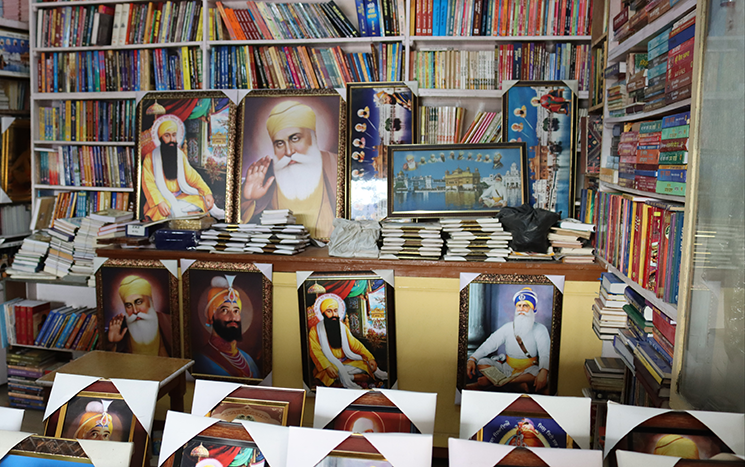
Souvenir store in Amritsar
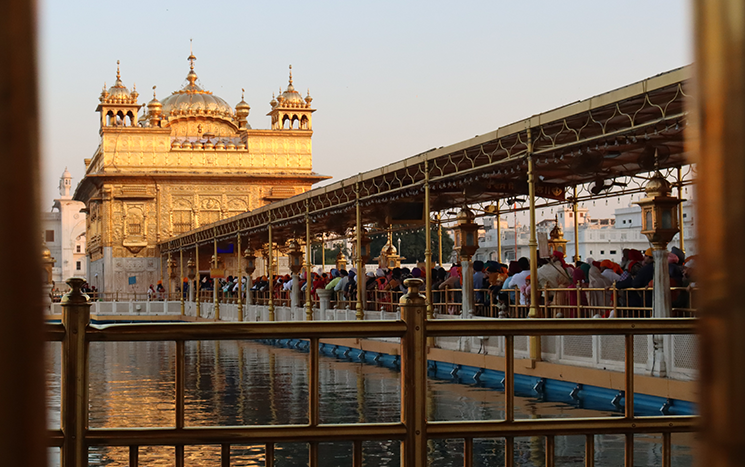
Walkway into the Golden Temple in Amritsar
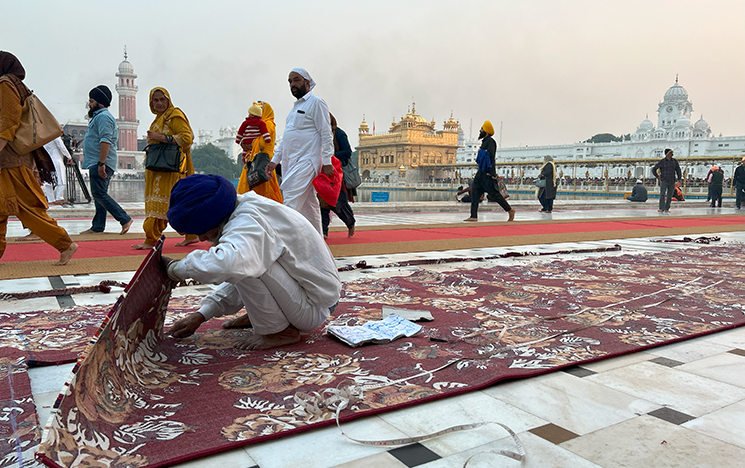
Man preparing carpet to fit in the Golden Temple in Amritsar
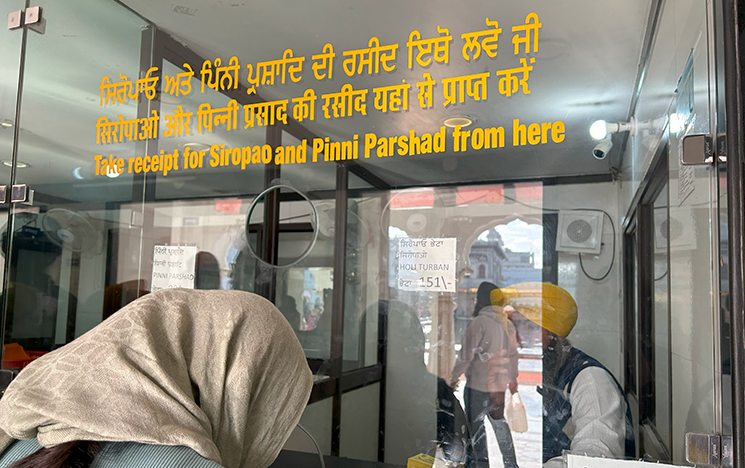
Donation booth at the Golden Temple complex in Amritsar
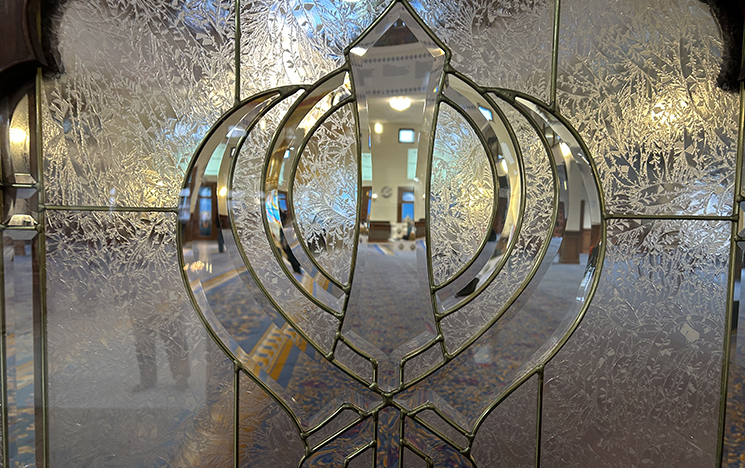
A khanda - Sikh emblem representing spiritual and worldly forces of the soul - on a gurdwara door
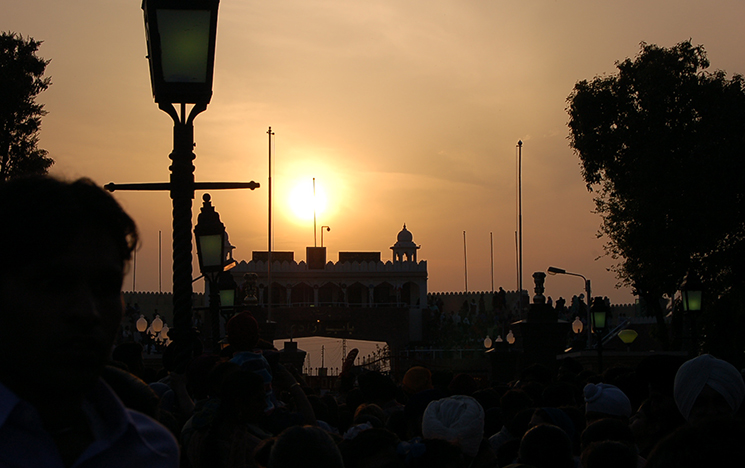
India - Pakistan border-crossing during pilgrimage tour in Panjab
This workstream focuses on British Panjabi Sikh pilgrimage tours to shrines in the post-partition nations of India and Pakistan.
Due to sporadic India-Pakistan tensions and wars, visits to Sikh shrines were difficult up until the 1980s, after which a transnational industry began to emerge to enable border-crossing pilgrims across India and Pakistan. The post-1990s neoliberal period has seen greater investment and commercialisation of the sites, consumerism, competition, and increasing attention to catering to the ‘religious experience’ of the Sikh diaspora. The new millennium has seen further gentrification and spiritualisation in the wave of anti-corruption initiatives. In 2019, the Kartarpur Corridor opened to enable pilgrims with Indian (or Overseas Citizen of India) citizenship to enter from India to Pakistan to visit the shrine where Guru Nanak spent his last years in the sixteenth century.
This work stream considers pilgrimonic practices with regards to the perspectives and experiences of tour managers, service providers, and those who embark upon pilgrim tours to India and Pakistan while visiting ancestral homes and other sites of interest. The research also illuminates issues to do with memories of partition among the Panjabi diaspora, belonging, citizenship, religio-spiritual experiences, and transnational engagements and transactions across shifting border-crossing terrains, geographical and conceptual.
Sites of interest
The prominent pilgrimage sites in India are in Amritsar that is host to the Golden Temple (also known as Harmandir or Darbar Sahib), the sacred centre for Sikhs and renowned as one of the most visited places in the world, not least for its large communal kitchen (langar). Nearby and in other regions across India are other historical gurdwaras (Sikh places of worship) that are frequently visited. Across the India-Pakistan border, in Lahore is Nankana Sahib associated with the founder, Guru Nanak, which along with other gurdwaras, has become integrated into diasporic pilgrimage in attempts to continue veneration of previously abandoned shrines while reconciling with the loss of former homelands, heritage and ancestry.
Workstream Lead Raminder Kaur
Golden Nights
- Video transcript
Music playing - Sufi Night organised for British Asian pilgrims by Rai Bilal Bhatti, the nineteenth generation descendant of Nawab Rai Bular Bhatti who donated land to Guru Nanak Dev.